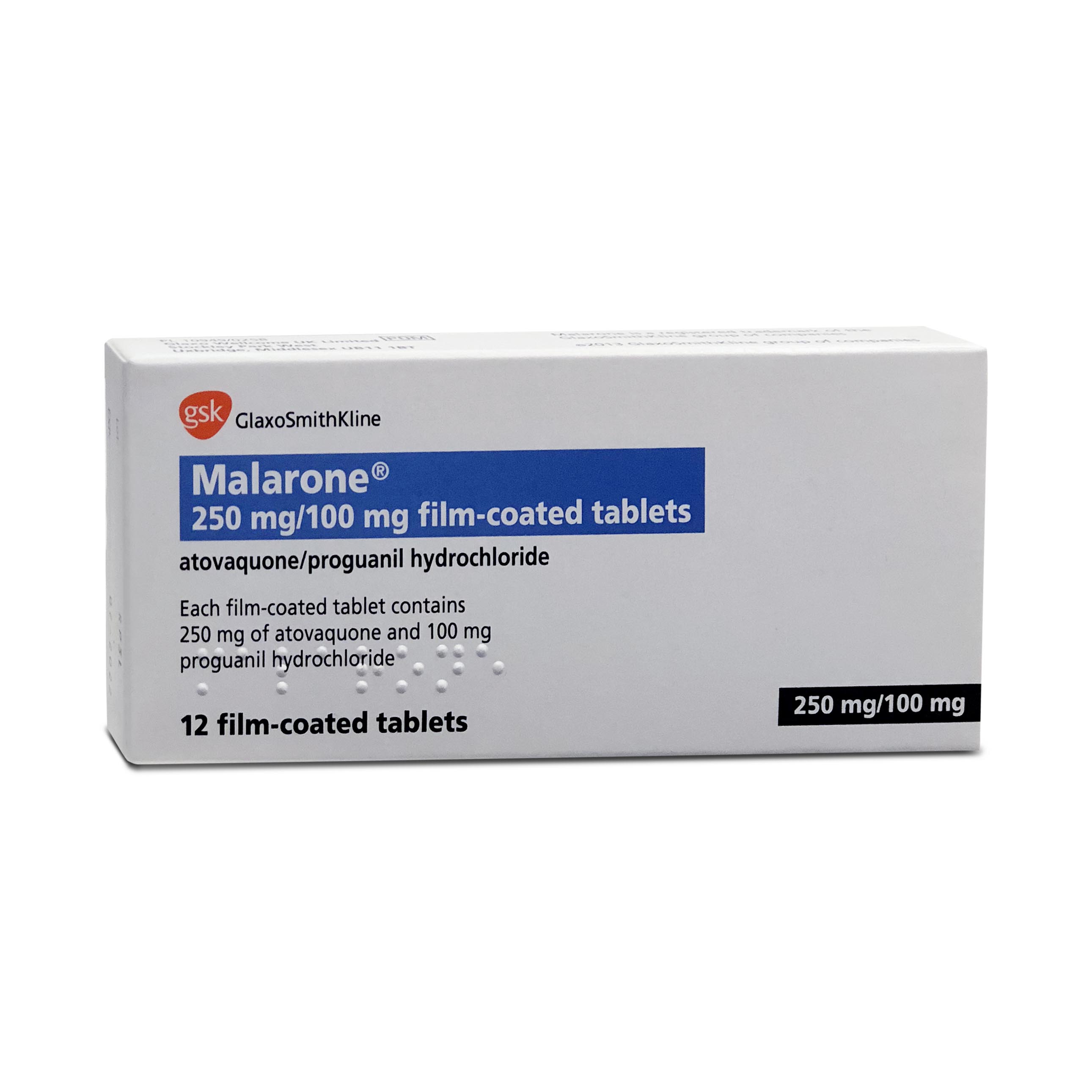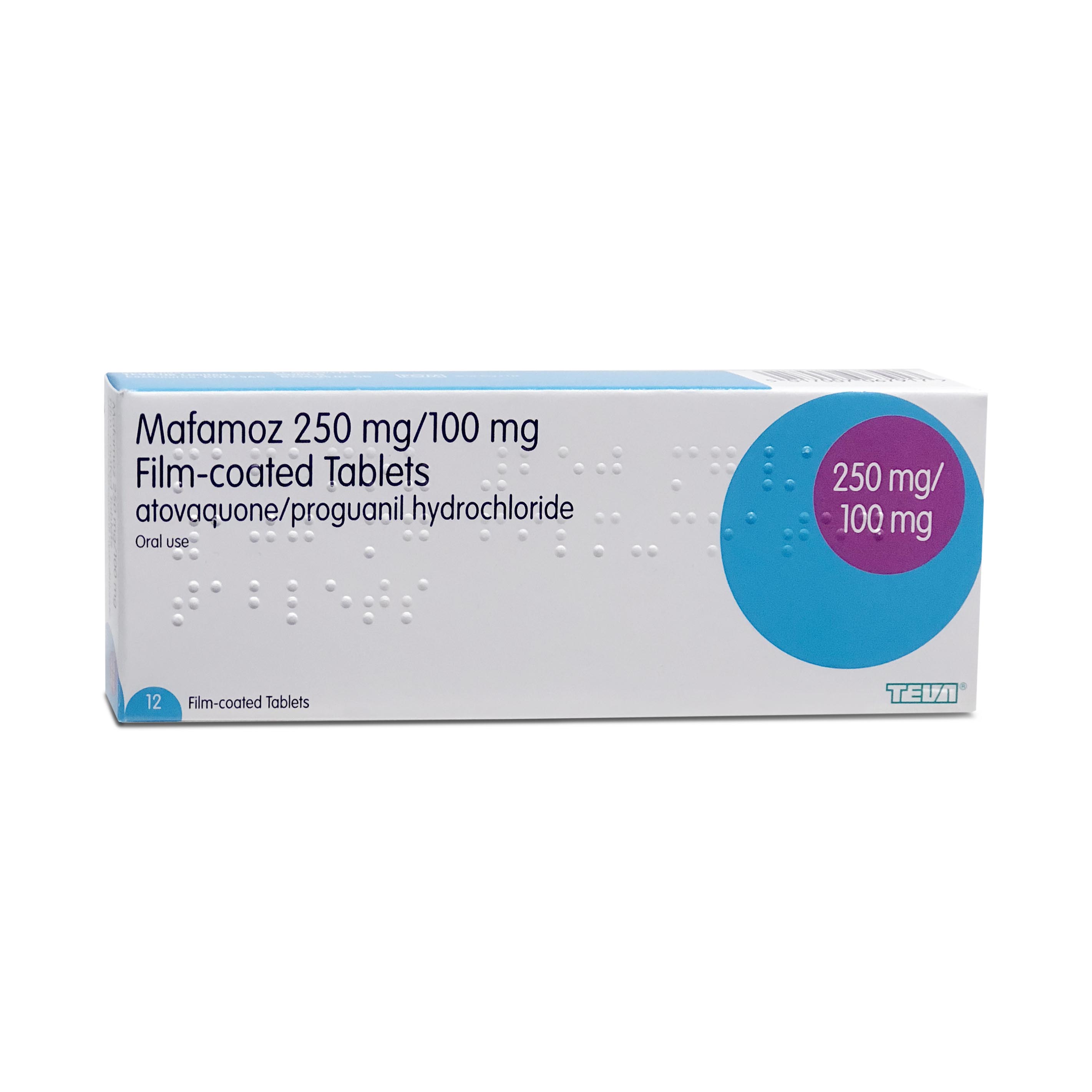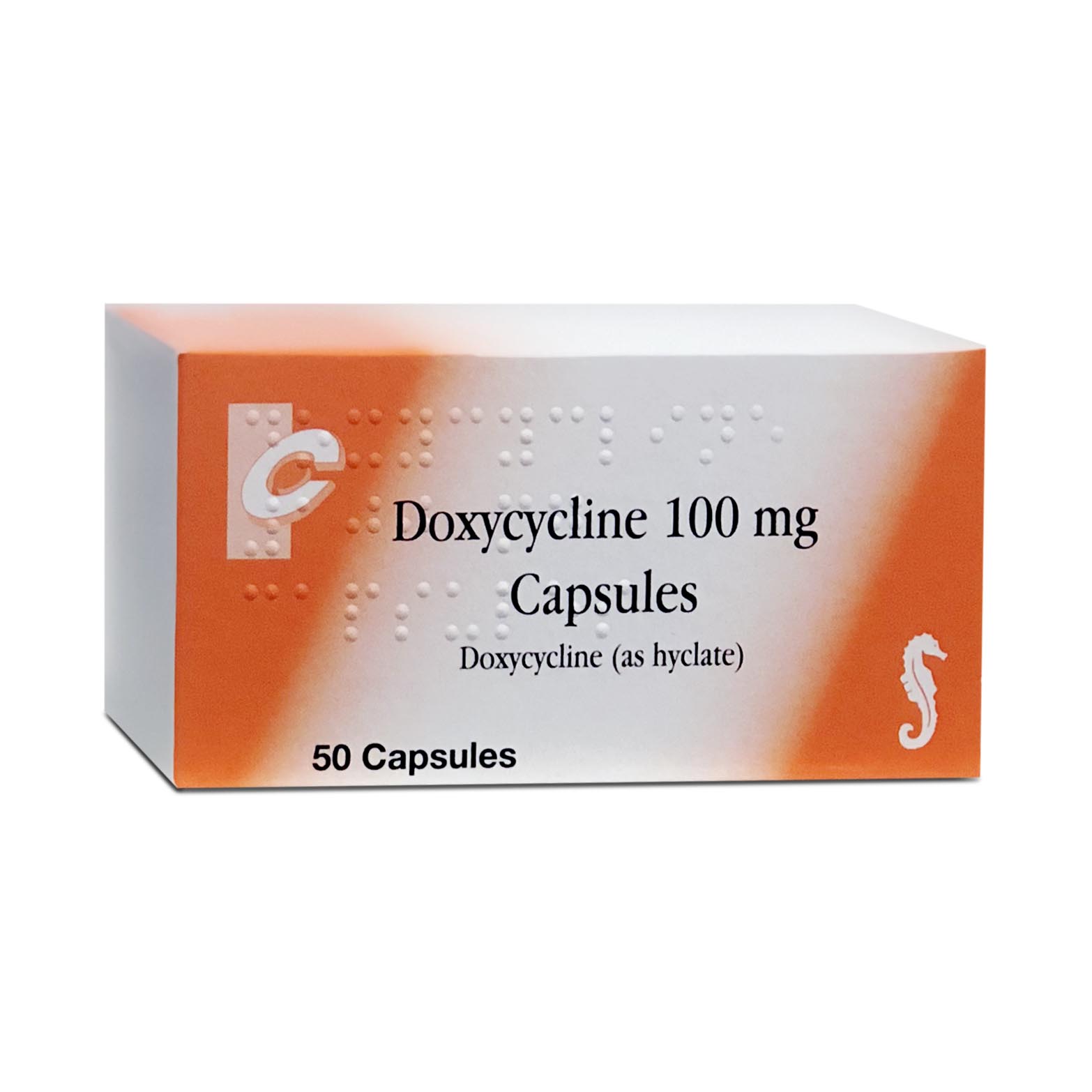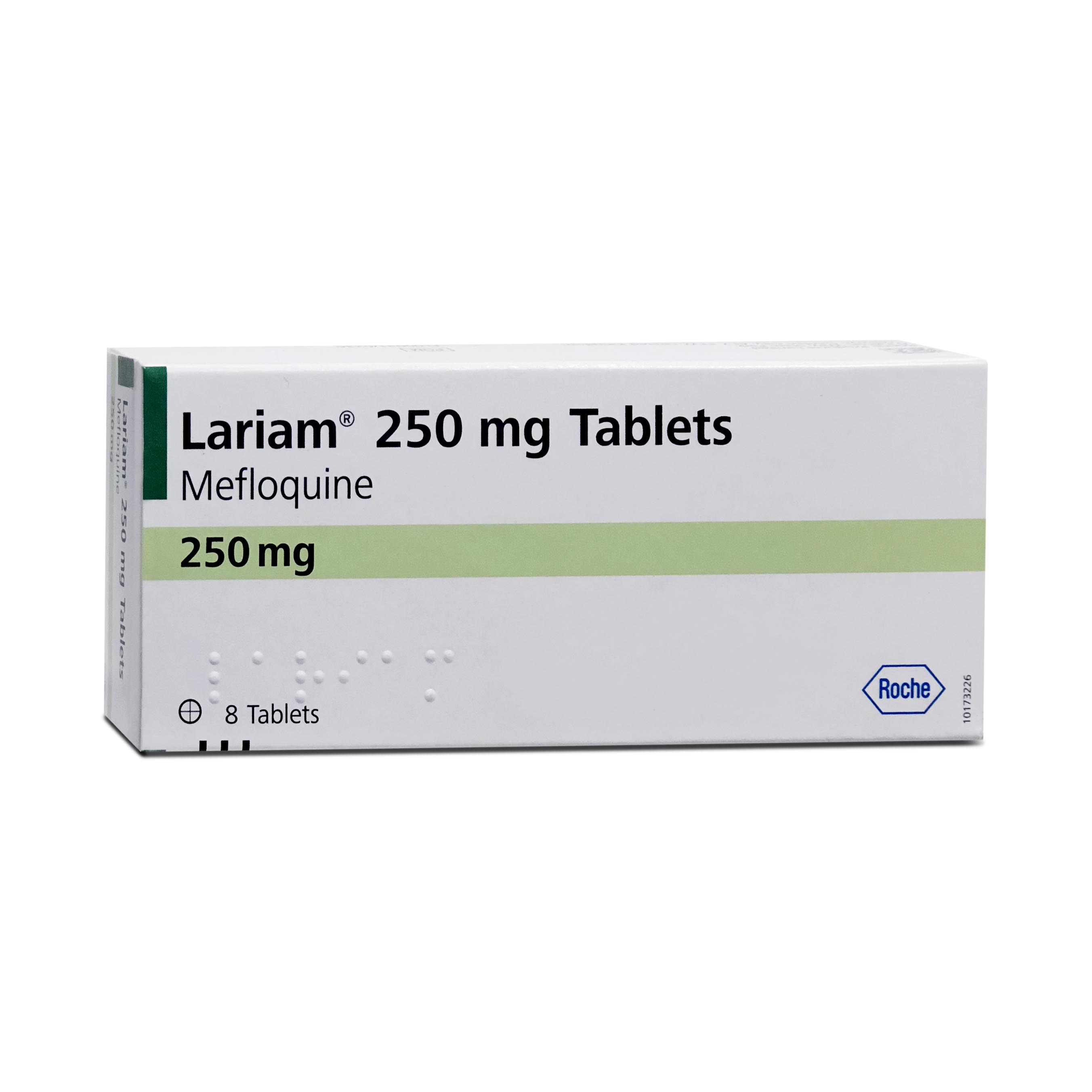Malarone Tablets
Malarone is an antimalarial drug produced by GSK. It contains the active ingredients atovaquone and proguanil and is also available as a generic (non-branded) version. It has a low side effect profile and is well tolerated. It needs to be taken daily, starting 2 days before travel, whilst there and for 7 days after.
-
 Next Day Delivery
Next Day Delivery
-
 Plain & Discreet Packaging
Plain & Discreet Packaging
-
 Confidential Service
Confidential Service
-
 UK registered service
UK registered service
Malarone Prices
| Medicine | x16 Tablets (1 Week) | x19 Tablets (10 Days) | x23 Tablets (2 Weeks) | x30 Tablets (3 Weeks) | x37 Tablets (4 Weeks) | x51 Tablets (6 Weeks) | x65 Tablets (8 Weeks) | x79 Tablets (10 Weeks) | x93 Tablets (12 Weeks) | x193 Tablets (6 Months) | x374 Tablets (1 Year) |
|---|---|---|---|---|---|---|---|---|---|---|---|
| Malarone 250mg/100mg Tablets | £45.99 | £54.99 | £62.99 | £78.99 | £94.99 | £131.99 | £169.99 | £197.99 | £217.99 | £449.99 | £899.99 |
About Malarone
Key Points
- More than 90% effective
- Offers protection when travelling to a malaria risk area
- Well-tolerated with little side effects
- One of the best treatments for the prevention and treatment of malaria
Buy Malarone Tablets
Buy malarone tablets from our repeatable UK online pharmacy. Purchase up to a year's worth of malaria medication, delivered to your door.
What is Malarone?
Malarone malaria tablets are a safe and effective medication that is used to prevent and treat malaria. It contains the active ingredients Atovaquone (250mg) and Proguanil Hydrochloride (100mg). It is used to prevent malaria in countries where malaria is common.
How does Malarone work?
The two ingredients present in Malarone (atovaquone/proguanil) work together to interfere with the growth of the malarial parasites that have entered the body, stopping them from reproducing and replicating.
Is Malarone effective?
When used in conjunction with other preventative measures, Malarone are more than 90% effective. It is important to note that whilst Malarone is one of the most effective antimalarial tablets available, no antimalarials can guarantee 100% protection.
Malarone dosage instructions
How to take Malarone?
Malarone should be taken 1-2 days before entering the malarial area, whilst in the malarial area and for seven days after leaving the malarial area. It should be taken once at the same time each day, preferably with food or a milky drink, as it helps to absorb the tablet more effectively whilst helping to reduce any gastrointestinal (stomach-related) side effects. It is important to remember to continue to take Malarone for seven days after having left the malaria zone, as this will ensure to kill any parasites that may be present in your body, stopping you from getting malaria.
What if I forget to take a dose of Malarone?
Take the dose as soon as you remember if it is on the same day. If you do not remember until the following day, leave out that dose and continue to take your tablets at your usual time. Do not take two tablets together.
Malarone side effects
Severe reactions are possible, but these occur in only a few people. You should stop taking Malarone and contact your GP immediately if you experience any of the following side effects:
- Rash
- Itching
- Sudden wheezing
- Tightness of the chest or throat or difficulty breathing
- Swollen eyelids, face, lips, tongue or other part of the body
Severe reactions can also occur on the skin. Speak to your GP urgently if you notice any skin reactions whilst taking Malarone. These include:
- Erythema multiforme – this causes a rash on the skin which may blister and have central dark spots with a paler area and dark ring around the edge
- Stevens-Johnson syndrome – this causes a severe rash which is spread across the skin with blisters and peeling, typically occurring around the mouth, nose, eyes and genital region
The following side effects tend to be mild and not last very long:
Very common (affect more than 1 in 10 people):
- Headache
- Feeling sick and being sick
- Stomach pain
Common side effects (affect up to 1 in 10 people):
- Feeling dizzy
- Insomnia and strange dreams
- Depression
- A loss of appetite
- Fever
- A rash which may be itchy
- Coughing
Other common side effects may show up in your blood tests, these include:
- Anaemia - a decline in the number of red blood cells which can cause tiredness, headaches and shortness of breath
- Neutropenia - a reduced number of white blood cells, making you more prone to infections
- Hyponatraemia - low levels of sodium in the blood
- An increase in liver enzymes
How long do Malarone side effects last?
Malarone has a low side effect profile meaning that most symptoms are typically mild and do not last long. It is one of the best malaria tablets with least side effects.
Malarone warnings
You must not take Malarone and tell your doctor if either of these apply to you:
- You’re allergic to atovaquone, proguanil hydrochloride or any of the ingredients of this medicine
- For prevention - if you have severe kidney disease
Seek advice from your GP or pharmacist before taking Malarone if:
- You have severe kidney disease
- Your child is being treated for Malaria and weighs less than 11 kg
Malarone and pregnancy
Unless necessary, pregnant women should try to avoid destinations where there is a risk of malaria. This is because pregnant women have a high risk of developing malaria that is more severe in comparison to non-pregnant women. Malaria can also cause complications in pregnancy such as miscarriage, stillbirth or premature labour. As well as this, it can also affect the normal growth of the foetus.
If travel to areas where malaria is present cannot be avoided, seek medical advice from your doctor about which malaria tablets malaria pills to take. Your doctor will decide whether the benefits of taking antimalarials outweigh the risks, considering how far you are into your pregnancy. You should postpone trying to get pregnant until after you have finished your course. If you discover that you are pregnant whilst taking Malarone, you should consult your doctor.
Malarone and breastfeeding
Malarone is not considered to be safe in those that are breastfeeding and should be avoided. You should speak to your doctor about which malaria tablets are most suitable for you to take.
Malarone interactions
It’s important to tell your GP or pharmacist if you are taking any other medicines. You should also inform them of any medicines you may have recently taken or might take, including those you’ve bought without a prescription. This is because some medications can affect the way Malarone works and Malarone can also strengthen or weaken the effect of some medicines, such as:
- Metoclopramide - treats nausea and vomiting
- Antibiotics - tetracycline, rifampicin and rifabutin
- Efavirenz or certain highly active protease - used to treat HIV
- Warfarin and other medicines - stops blood clotting
- Etoposide - treats cancer
Your doctor will assess whether Malarone is suitable for you, or whether you need extra checkups while you’re taking it.
Malarone and alcohol
There is no interaction between Malarone and alcohol, and you can drink whilst taking these tablets.
Malarone alternatives
What is the difference between Malarone and generic malarone?
Many medicines on the market are now available as a non-branded version, which is usually cheaper. The manufacturers of Malarone had a license to be the sole producers of this medication, and when that license ran out, other drug manufactures were free to produce the same tablet, in a non-branded form. Both tablets contain the same active ingredients and work the same way to protect against malaria.
Malarone vs doxycycline
- Doxycycline works to prevent and treat malaria
- Both Doxycycline and Malarone is taken daily
- Doxycycline is particularly effective in areas with multidrug-resistant P. falciparum - the most dangerous and drug-resistant malaria parasite
- Malarone has a low side effect profile and may be a suitable alternative for people who cannot take Doxcycyline
Malarone prevention
How you take Malarone tablets for prevention is different to how you take it to treat malaria. You should start taking Malarone 1-2 days before entering a malaria-endemic area.
You continue taking it daily while in the area and for 7 days after leaving.
Malarone ingredients
Active ingredient: 250 mg of atovaquone and 100 mg of proguanil hydrochloride
Inactive ingredients:
Tablet core - poloxamer 188, microcrystalline cellulose, hydroxypropyl cellulose, povidone K30, sodium starch glycollate (Type A), magnesium stearate
Tablet coating - hypromellose, titanium dioxide (E171), iron oxide red (E172), macrogol 400 and polyethylene glycol 8000
Sources
British National Formulary. (n.d.). Atovaquone with Proguanil Hydrochloride. Retrieved August 26, 2024, from https://bnf.nice.org.uk/drugs/atovaquone-with-proguanil-hydrochloride/
A relatively common side-effect of Malarone is nausea. Whilst most people are not affected by this, a few people may find themselves feeling slightly sick after taking a tablet. Sickness with Malarone can be minimized by taking a tablet with a meal that is rich in carbohydrates, in order to line the stomach.
If you vomit within the space of an hour after having taken Malarone, you should take another tablet. You should inform us that this has happened, and we can arrange to send you a replacement tablet.
Even after you have left the country where malaria is present, you are still at risk of developing malaria. This is because there may be parasites in your body from an infected mosquito bite that you received whilst abroad. 7 days of treatment is required to kill these parasites to prevent them from replicating and causing malaria. If you stop taking anti malaria tablets before the prescribed course is over, you run the risk of developing malaria.
You can crush tablets and sprinkle them over food. To avoid wasting any of the tablets, you can place one in a small plastic bag and crush it.
The best tablets for malaria are usually down to individual requirements, such as the side effect profile, preference on dosage and medical history. Some malaria medications have a shorter post-travel dosing period such as Malarone, while others are more affordable such as Doxycycline. You should always speak to your GP or pharmacist before starting any antimalarial medication to ensure you use the best treatment for your personal needs.
Due to the nature of this type of medication, it is important that you are screened so that we can determine whether the medication is safe for you to take or not.
It’s uncommon to receive travel medication on an NHS prescription. Travel is seen as a luxury, which is why Malarone is not available on the NHS. Exemptions to the rule are those with certain medical conditions, and those who live in areas where a large percentage of the local population have returned from malarious areas with malaria. To find out if you are eligible for malaria tablets on an NHS prescription, you should ask your GP.
The medical questionnaire is designed to assess each patient individually, in the same way your doctor or pharmacist would carry out a consultation. In the best interests and safety of our patients, we require everyone to fill out a questionnaire themselves.
Summary For Malarone Tablets
| Medication Class | Antimalarial |
|---|---|
| Mechanism of action | Stops malarial parasites from growing by halting reproduction and replication |
| Active ingredient | Atovaquone and Proguanil Hydrochloride |
| Strength | Atovaquone (250mg) and Proguanil Hydrochloride (100mg) |
| Effective within | Provides protection against malaria after it has been taken for 1-2 days |
| Dosage Instructions | Once a day |
| Manufacturer | GlaxoSmithKline (GSK) |
| Use with alcohol | In moderation |



